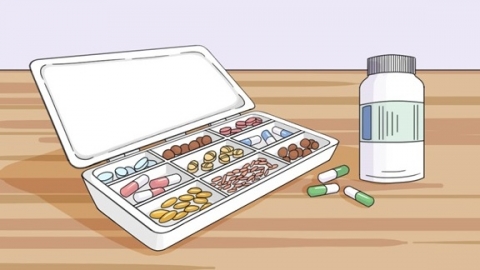Which medications can lower low-density lipoprotein (LDL)?
Generally, under a doctor's guidance, drug therapy can be used to lower low-density lipoprotein (LDL). Common medications include atorvastatin calcium tablets, rosuvastatin calcium tablets, simvastatin tablets, ezetimibe tablets, and probucol tablets. Detailed analysis is as follows:

1. Atorvastatin Calcium Tablets
Atorvastatin calcium tablets primarily contain atorvastatin calcium, which functions to regulate blood lipid levels. It inhibits cholesterol synthesis and effectively lowers LDL levels. It is suitable for individuals with hypercholesterolemia and thus appropriate for those needing to lower LDL.
2. Rosuvastatin Calcium Tablets
Rosuvastatin calcium tablets contain rosuvastatin calcium and other components, effectively lowering blood lipids. By inhibiting cholesterol synthesis in the liver, it reduces LDL levels and helps regulate abnormal lipid levels, thus can be taken under a doctor's guidance.
3. Simvastatin Tablets
Simvastatin tablets are composed of simvastatin and function to lower blood lipids. They are suitable for primary hypercholesterolemia and effectively reduce LDL levels, making them appropriate for regulating blood lipid levels.
4. Ezetimibe Tablets
Ezetimibe tablets contain ezetimibe, which inhibits the intestinal absorption of cholesterol. By reducing cholesterol entering the bloodstream, they lower LDL levels and help regulate lipid levels in patients with hyperlipidemia unresponsive to dietary control alone.
5. Probucol Tablets
Probucol tablets are composed of probucol and have the effect of regulating blood lipids. They lower LDL levels while providing antioxidant effects and are suitable for hypercholesterolemia, making them one of the commonly used medications.
In addition, individuals needing to lower LDL levels may use other suitable medications under a doctor's guidance. During treatment, patients should maintain a low-fat diet, increase physical activity, control body weight, and assist in lipid regulation.







